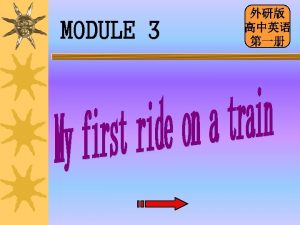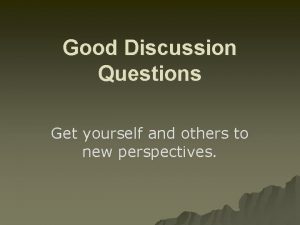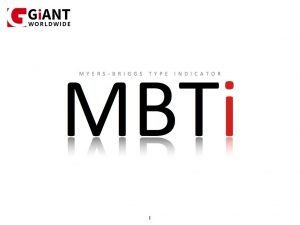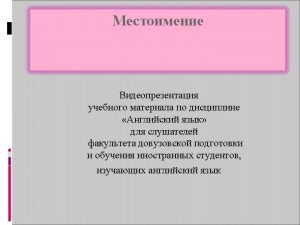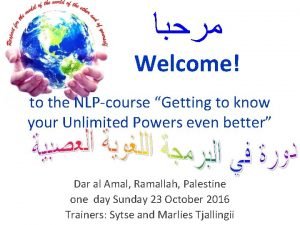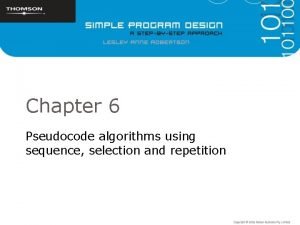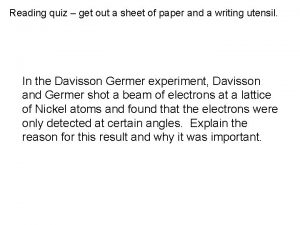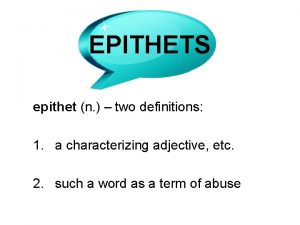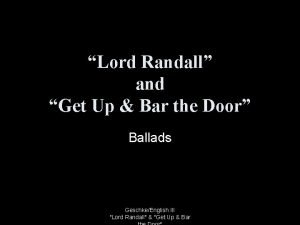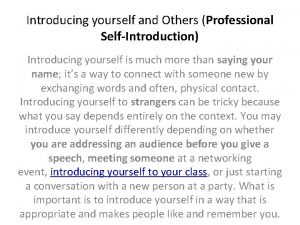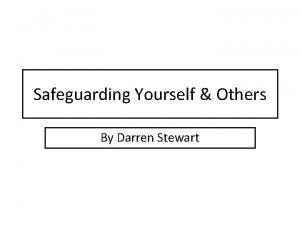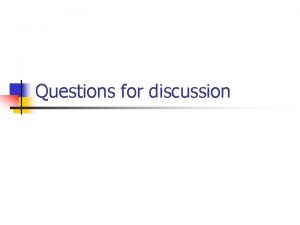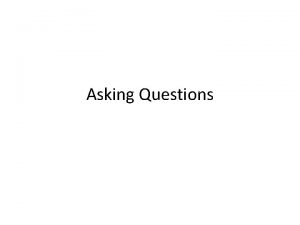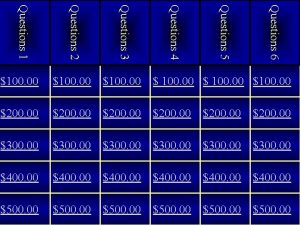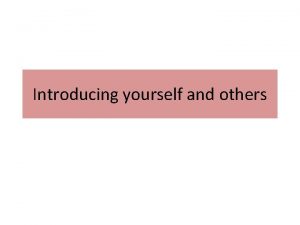Good Discussion Questions Get yourself and others to


























- Slides: 26

Good Discussion Questions Get yourself and others to new perspectives.

Creating Discussion Questions u Good discussion questions are not answered by “yes” or “no”. u They lead to higher thinking. allow for multiple correct answers.

What’s “higher order thinking” mean? u Higher-order thinking requires people to – manipulate information and ideas u The GOAL of Higher-order thinking – Transform or change meaning and implications. u. New and/or deeper understandings.

What’s “higher order thinking” mean? u This transformation –or change occurs when – you combine facts and ideas in order to synthesize, generalize, explain, hypothesize or arrive at some conclusion or interpretation.

Variety of Responses u Good discussion questions call for more than simply recalling facts or guessing what the teacher already wants to know, but are open-ended, leading to a variety of responses.

What’s an “open-ended” question? u An open-ended question is designed to encourage a full, meaningful answer using the subject's own knowledge and/or feelings. It is the opposite of a closed-ended question, which encourages a short or single-word answer. Open-ended questions also tend to be more objective and less leading than closed-ended questions (see next page). u http: //www. mediacollege. com/journalism/interviews/open-ended-questions. html

What’s an “open-ended” question? u Open-ended questions typically begin with words such as "Why" and "How", or phrases such as "Tell me about. . . ". Often they are not technically a question, but a statement which implicitly asks for a response. u http: //www. mediacollege. com/journalism/interviews/open-ended-questions. html

Allow for Different Perspectives u Good discussion questions recognize that readers will have different perspectives and interpretations and such questions attempt to engage readers in dialogue with each other.

Good discussion questions u Good discussion questions depend on a careful reading of the text. They often cite particular scenes or passages and ask people to look at them closely and draw connections between these passages and the rest of the work, themselves, the world. . .

Good discussion questions u Good discussion questions are simply and clearly stated. They do not need to be repeated or reworded to be understood.

Good discussion questions u Good discussion questions are useful to people. Good questions can help to clarify passages or issues people may find difficult. They help students understand cultural differences that influence their reading. They invite personal responses and connections.

Challenge Connections u Good discussion questions make or create and often challenge connections between the text at issue and other works, and themes and issues of the course.

What does “higher order thinking” involve? Higher Order Thinking involves dealing with questions that force you to u u u Analyze Synthesize Evaluate Apply Generate Everything you think is true. u http: //honolulu. hawaii. edu/intranet/committees/Fac. Dev. Com/guidebk/teachtip/questype. htm

Analysis u What evidence exists for. . . u How does. . . compare/contrast with. . . ? u What patterns or relationships do you see in. . . ? u http: //honolulu. hawaii. edu/intranet/committees/Fac. Dev. Com/guidebk/tea chtip/questype. htm

Synthesis u u u u u What would you infer from. . . What ideas can you add to. . . How would you design a new. . . What might happen if you combined. . . What solutions might you suggest for. . . How many ways can you think of to. . . ? Conclude what the result would be if . . . What generalizations can you make? If you could pull this all together in 3 -4 sentences, what you would say? http: //honolulu. hawaii. edu/intranet/committees/Fac. Dev. Com/guidebk/teachtip/questype. htm

Evaluation u Do you agree that. . . ? u What do you think about. . . ? u What is the most important. . . ? u Place the following in order of priority. . . And explain why you placed them that way. u How would you decide about. . . ? u What criteria would you use to assess. . . ? u http: //honolulu. hawaii. edu/intranet/committees/Fac. Dev. Com/guidebk/teachtip/questype. htm

Application u How is. . . an example of. . . ? How is. . . related to. . . ? Why is. . . significant? Give some instance which. . . ? How is. . . related to. . . ? How is. . . an example of. . . ? How would you use this information? What do you need to solve this problem? What are possible solutions to. . . ? u http: //honolulu. hawaii. edu/intranet/committees/Fac. Dev. Com/guidebk/teachtip/questype. htm u u u u

Generation u u u u u How many ways can you think of to. . . ? What would happen if. . . ? Predict what would be true if. . . How can you explain. . . ? Elaborate about. . . ? What would you predict/infer from. . . ? What solutions would you suggest for. . . ? If you were ___, how would you have. . . ? http: //honolulu. hawaii. edu/intranet/committees/Fac. Dev. Com/guidebk/teachtip/questype. htm

Asking Analytical Questions for Discussion u An important step in fostering academic discussions is learning how to ask a good analytical question, one that poses a challenging way to address the texts of the course. u You will need to carefully observe and reflect on the assigned reading before developing the question itself.

Truly Interested in Exploring Think of the question as something that you are truly interested in exploring as you read – not everyone will develop the same interpretations and impressions that you do.

A good analytical question: u Speaks text. to a genuine dilemma in the – the question should focus on a real confusion, ambiguity or gray area of the text. u Yields an answer that is not obvious. – The question should allow room for exploration and not be too specific or answered too easily.

A good analytical question: u Suggests an answer complex enough to sustain a vibrant discussion. If the question is too vague, it won’t elicit deep analysis and reflection. u Can be answered by the text rather than by just generalizations or emotional feelings.

Tips to keep in mind: How & Why Not Who What When or Where u “How” and “why” questions generally require more analysis than “who, ” “what, ” “when, ” or “where” questions.

Tips to keep in mind: u. Good analytical questions can highlight patterns and connections OR contradictions, dilemmas and problems. u. Good analytical questions can also ask about some implication or consequences of your analysis.

Key Words Not Yes or No u Higher Level Thinking u Multiple Correct Responses u Open-Ended u Manipulate Information u Combine Facts & Ideas u Deeper Understanding u New Understandings u Careful Reading of text u

Resources u u u http: //www. mediacollege. com/journalism/intervie ws/open-ended-questions. html http: //honolulu. hawaii. edu/intranet/committees/F ac. Dev. Com/guidebk/teachtip/questype. htm Book Discussion Topic Resources Reading Group Guides: Fiction Discussion Questions Lit Lovers: Generic Discussion Questions Random House-Reading Group Center: Comprehensive (Many kinds of writing) Discussion Topic Resource
 Get in get on get off get out
Get in get on get off get out Alliteration in one direction songs
Alliteration in one direction songs Chapter 6 lesson 2 respecting yourself and others
Chapter 6 lesson 2 respecting yourself and others Motivating yourself and others
Motivating yourself and others Effective discussion questions
Effective discussion questions Know yourself to lead yourself
Know yourself to lead yourself Check yourself before you wreck yourself origin
Check yourself before you wreck yourself origin Himself yourself
Himself yourself Youtube yourself broadcast yourself
Youtube yourself broadcast yourself Who is who
Who is who Fractional distillation discussion
Fractional distillation discussion Good thoughts good deeds good words
Good thoughts good deeds good words Hello, good evening
Hello, good evening Good afternon animado
Good afternon animado You are good when there's nothing good in me
You are good when there's nothing good in me Good afternoon students
Good afternoon students Get up get moving quiz
Get up get moving quiz Get up get moving quiz
Get up get moving quiz Get up get moving quiz
Get up get moving quiz Sequence in pseudocode
Sequence in pseudocode Get focused get results
Get focused get results Germer
Germer Work in pairs discuss and answer the following questions
Work in pairs discuss and answer the following questions In your notebook write questions with how long
In your notebook write questions with how long Epithet
Epithet Beauty is seen in
Beauty is seen in Get up and bar the door ballad
Get up and bar the door ballad
